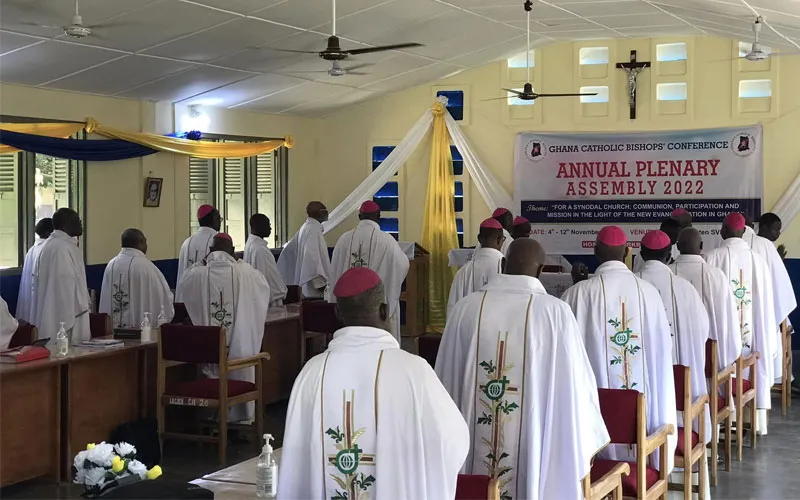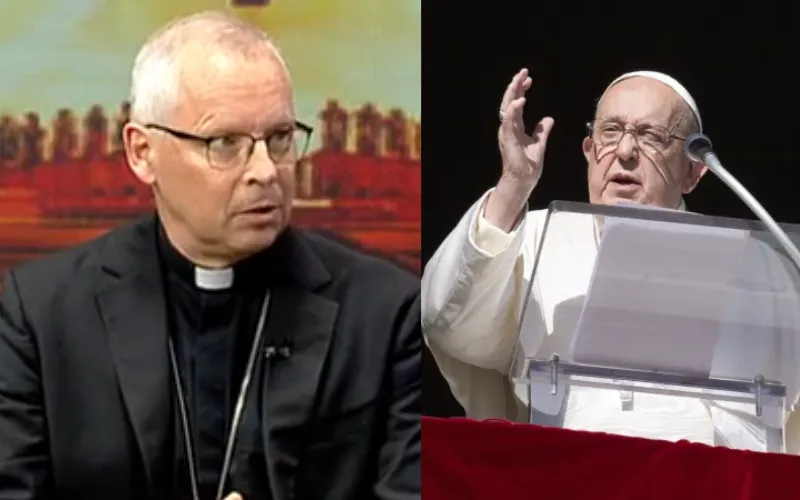“Our previous calls on this issue seem to yield no positive result. We reiterate that corruption in every facet of Ghanaian life is not only perceived but very rife. This is unacceptable and must be dealt with at all times and at all levels of human endeavor,” they say.
GCBC members call on “every Ghanaian religious leaders, individuals, government agencies, service providers, public and civil servants – to stand up and to defend the cause of justice, probity and accountability.”
“Ghana must lead and live the crusade against corruption. Let us eschew all attitudes, behaviors and actions that support, encourage and condone bribery and corruption,” they say, and call on “all Catholics, especially those in politics and public service to lead this crusade against corruption.”
The members of GCBC are also concerned about “galamsey or illegal mining activities and their devastating effect on the environment, our water bodies, the forest reserves and the quality of life of our people.”
“It is common knowledge that the main financiers/kingpins of this illegal mining include chiefs, politicians, Regional Ministers, Metropolitan, Municipal and District Chief Executives (MMDCEs), Security Personnel among others. This is the main reason for our inability to uproot the menace of galamsey and have difficulty in prosecuting those arrested for their involvement in illegal mining,” the Catholic Bishops lament.
(Story continues below)
They urge the “relevant agencies responsible for the protection and preservation of our natural resources to ensure the prosecution of the financiers of activities that result in major crisis facing the country such as illegal mining (galamsey).”
“We strongly propose that a moratorium be placed on granting new concessions and issuing of licenses for mining,” GCBC members recommend, and add, “In the case where any actions have already been taken, we propose that operationalizing of the agreements be placed on hold until a clear pathway is developed to ensure modern and environmentally friendly mining.”
They continue, “Government in partnership with the private sector should engage all stakeholders to develop and operationalize alternative sources of livelihood for those involved in illegal mining.”
Regarding the protracted conflict in the Ghanaian district in the Upper East region, North of the country that is adjacent to the border with Burkina Faso, the Catholic Church leaders say, “It appears the conflict and insecurity in Bawku are gradually getting off the radar of the Government.”
“The town has become a pale shadow of itself as Education, Health and Social are adversely affected by the exodus of teachers, nurses and business people from this area,” they lament.
GCBC members say the Nana Akufo-Addo-led government “needs to pay attention to the plight of the remnant residents of the town by ensuring that lasting solution is found for the conflict in the area and should act swiftly to prevent Bawku and its environs from becoming a possible launching pad for terrorist groups operating in neighbouring countries.”
They also appeal “to the factions involved in the conflict to help the process of peacebuilding for the sake of the future of Bawku and the peace of Ghana.”
GCBC members call on “all Ghanaians to be hopeful.”
“We appeal to all to pray and continue to make the necessary sacrifices as we look forward to quick interventions that will bring us out of the current difficulty,” they say, and add, “We can make it together and as our theme for the plenary suggests, through participation and communion we can do all things through Christ who strengthens us.”
They urge Ghanaians “to live in a manner worthy of the call you have received as apostles, prophets, evangelists, pastors, teachers and all people of good will for the building of the body of the Church until we attain the unity of faith and knowledge of the Son of God.”
Jude Atemanke is a Cameroonian journalist with a passion for Catholic Church communication. He holds a Bachelor’s Degree in Journalism and Mass Communication from the University of Buea in Cameroon. Currently, Jude serves as a journalist for ACI Africa.








